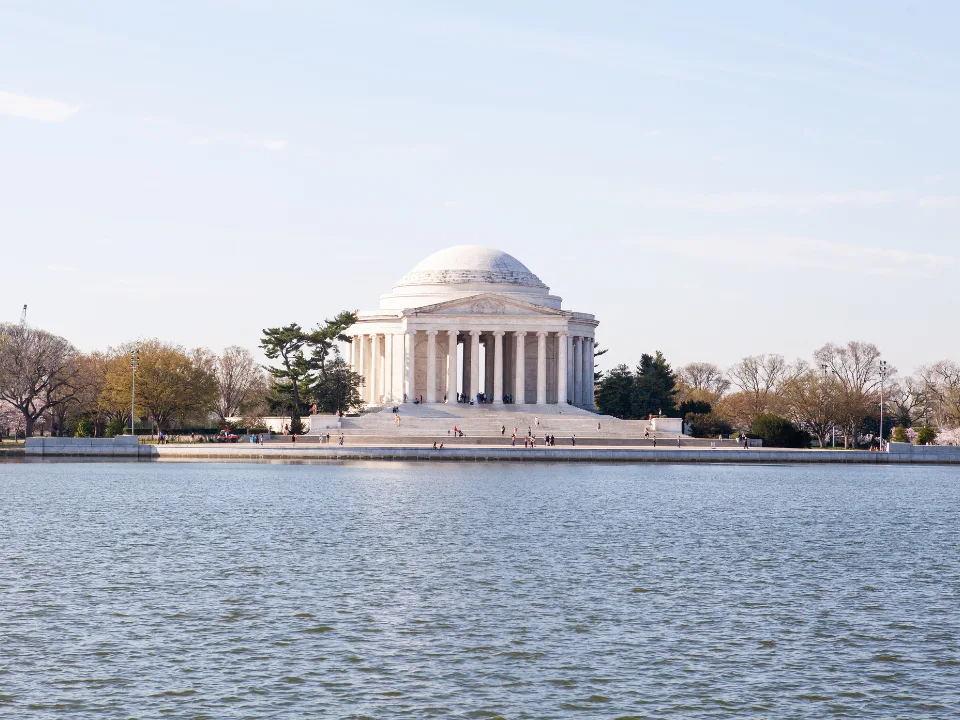- D.C., Hawaii, and New Mexico are the hardest hit by the ongoing federal shutdown, per WalletHub.
- Leasing delays, contract freezes, and tourism drops are straining commercial real estate in federal-reliant markets.
- Nationwide, the shutdown is costing $400M daily and stalling mortgage approvals and property deals.
Shutdown’s CRE Impact Spreads Beyond Capitol Hill
The federal government shutdown, now stretching into its third week, is beginning to take a noticeable toll on local real estate markets, especially in areas heavily tied to federal jobs, contracts, and leasing, per GlobeSt.
WalletHub’s latest research identifies Washington, D.C., Hawaii, and New Mexico as the most vulnerable regions in the nation, with ripple effects extending across the commercial real estate sector.
Federal Exposure Means CRE Risk
Washington, D.C., leads the list, given its deep dependence on federal agencies and contractor operations. Real estate brokers report that lease renewals in federally occupied buildings are being delayed, while planned relocations and procurements are frozen.
Hawaii follows closely due to its concentration of military bases and federal workers—accounting for 5.6% of all jobs in the state. Shutdown-related furloughs and stalled defense-related contracts have disrupted local office and logistics markets. Compounding the issue, the temporary closure of national parks is weighing on tourism-related retail and hospitality assets.
New Mexico’s exposure lies in its federal lab system and high SNAP dependency. With over 20% of households relying on food assistance and several major R&D contractors in the state, any disruption to federal cash flows is expected to delay nearby leasing and development activity.
CRE Hot Spots Under Pressure
Alaska and Maryland round out the top five. Both states rely heavily on federal employment and public land management. Alaska’s rural economies are taking a hit from national park closures, while Maryland and Virginia’s defense corridors are feeling the pinch from suspended contracts and furloughs.
Other top-10 states feeling the pressure include Alabama, Oklahoma, and Arizona—each of which has high exposure to military operations or park-dependent tourism.
Meanwhile, states like Minnesota, Iowa, and Indiana are experiencing minimal disruption due to their low federal employment shares and limited exposure to government contracting.
Why It Matters
According to WalletHub, the shutdown is costing the US economy an estimated $400M per day. Beyond direct employment impacts, the real estate fallout includes:
- Delayed mortgage processing due to reduced staffing at federal agencies like the FHA, VA, and IRS.
- Stalled USDA loan approvals, slowing rural housing deals.
- Paused leasing decisions for government-occupied properties.
- Reduced liquidity in transactions reliant on federal verifications.
If the stalemate continues, expect a broader slowdown in leasing, lending, and construction activity, particularly in markets where government spending is a key economic driver.
Looking Ahead
While Congress continues to debate, real estate stakeholders are bracing for further disruption. The longer the impasse, the more likely it is to erode confidence among tenants, investors, and developers, especially in government-reliant regions.
If past shutdowns are any guide, recovery could be uneven, with federal-heavy CRE markets likely to see the sharpest slowdowns and slowest rebounds.
Get Smarter about what matters in CRE
Stay ahead of trends in commercial real estate with CRE Daily – the free newsletter delivering everything you need to start your day in just 5-minutes

















